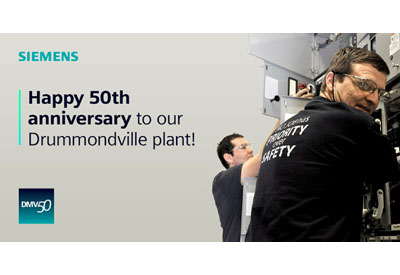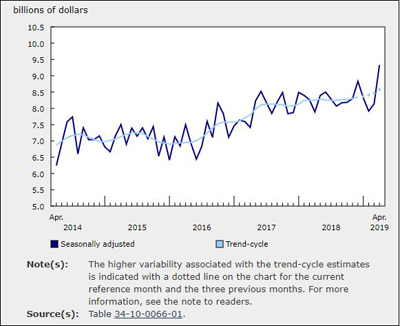Revenue Generation, Content Takeaways from B2B Online Conference

June 18, 2018
By David Gordon
eCommerce continues to be a heavily discussed issue within the electrical industry, with distributors investing in aggregate millions of dollars, and manufacturers redesigning sites, investing to build, manage and enhance product content and considering the alternative channels that eCommerce is creating, be it Amazon Business, Grainger and Zoro, HomeDepot.com, Ferguson.com, AutomationDirect, and a myriad of alternatives.
A challenge for many is what information is “right”? It’s a loaded question as “right” is in the eyes of the beholder (or should we say, the person trying to sell you something?). NAED has shared some information (and is in the process of releasing a report from the Channel Advantage Partnership on Amazon Business), marketing groups have shared their visions, suppliers have helped some members travel this journey, and others have sought external support. And as some know, there are eCommerce conferences to broaden distributor and manufacturer information knowledge.
One such meeting is B2B Online, which was held in Chicago earlier this month. Remi Ducrocq, CEO of Kyklo, an eCommerce provider to automation distributors and electrical distributors seeking commerce-enabled sites for their automation business, attended B2B Online and shared his insights:
I recently attended the 4th edition of B2B Online. One of the fastest growing eCommerce conferences, the meeting has grown from 200 to 800 attendees in four years. This year’s meeting brought together eCommerce leaders from major manufacturers, distributors and technology vendors.
After three years at the forefront of this topic in Asia, I was curious to determine whether the North American market, known to be leading the B2B eCommerce transformation, would have solved the challenges faced by manufacturers and distributors in Asia.
I discovered the challenges are the same in the U.S. as in distant Southeast Asia and all points between. Distributors and their partners face the same set of issues. With this perspective, allow me to share my key takeaways from the conference.
- 1. eCommerce is about sales, not marketing
At the beginning of their e-commerce journey, most distributors mistakenly believe their webshop, which is the on-line store portion of your website, only serves as a marketing tool and “information portal.” Using this, buyers will be able to check product data, price and availability.
The few distributors who set up a platform and establish the proper adoption of their sales organization will testify eCommerce is not just about marketing. It’s about customer experience and driving more sales.
As Russell Scherwin of IBM’s Watson Customer Engagement stated in his presentation, “Where are you? In marketing, ecommerce, digital? No, you are in sales.”
For B2B, where growth relies on business relationships, eCommerce exists to strengthen those valuable relationships. Providing a better customer buying experience, equipping sales people with digital tools and enabling more sales should be the major goal and the order of the day.
Understanding eCommerce seems simple, but most B2B organizations still have a very strong B2C bias. This causes them to set the wrong expectations and ultimately fail their digital transformation. Since most electrical wholesalers have discovered that selling to the consumer (B2C) is not profitable in their current business model, the issue is doubly concerning. eCommerce is about sales operations and customer experience for the distributor’s targeted customer list, which does not include homeowners.
- 2. Content remains a major challenge, even for the most advanced players
Despite major investments by manufacturers and distributors, poor content was repeatedly cited as the big hurdle by panelists and keynote speakers. Silas Carter, Dell’s E-commerce Senior Manager, repeated the message:
“Get your product data right, because if content is not correct, you will not get anywhere. This is a must-have component.”
Further, Essendant’s VP of Pricing and Integration, Ken Sauers, made these three key recommendations:
- Data quality really matters
- Start small and get early wins
- Find the right partners
Mr. Sauers went on to say, “It’s important to not be satisfied with what is provided by manufacturers. Instead, you need to be proactive, find partners with the right expertise assisting with the process, and accelerate the impact for the customer.”
Industry leaders have discovered content is the core foundation of a successful digital transformation. And, building relevant, taxonomized and searchable content is an expertise that requires distributors and manufacturers to partner with companies who do this as their core business.
- 3. Don’t build custom systems, instead pick the right partner for your digital journey
The U.S. edition of B2B Online showcased many vendors. Attendees had plenty of options for gathering information on PIM, eCommerce and content services.
A critical point: most (if not all) of the vendors are technology experts but not industry/domain experts. Referring back to the speakers, eCommerce allows you to deliver complex product content in a seamless and simple manner, delivering a B2C-like experience while embracing the B2B business processes of your industry.
One might think distributors and manufacturers have the industry expertise and that they might steer their purely technology-centric partners in building specifications for the data required. But experience dictates something completely different.
Why? Because building an in-house, custom eCommerce site is akin to maintaining a server farm rather than using a Cloud solution. Simply stated, it’s re-inventing the wheel and thinking you’re good at everything rather than a specialist in selling your products. eCommerce companies are specialists in designing these systems. Does your IT department have these skills? Probably not, and if they do, my guess is they are probably underpaid! Using partners with Internet expertise and domain knowledge from within your specific industry allows you to accelerate progress and instead focus on implementing adoption — and driving additional sales.
- 4. Marketplaces: Amazon, the elephant in the room
Amazon, the undisputed leader in the B2C eCommerce revolution, has strong ambitions in the B2B space. It was no surprise that Martin Rohde, Amazon Business GM, opened the Monday morning sessions. Martin restated Amazon’s main priority is always “Doing invention on behalf of the customer.”
Amazon for Business is quickly learning and adapting their platform to meet B2B needs such as business pricing (only for qualified Amazon Business customers), quantity discounts, and even CAD drawings for many products. It leads the charge on new delivery techniques, further pushing the envelope always faster with Amazon Prime shipping.
Despite what I would characterize as a friendly keynote, it’s quite obvious Amazon is a major threat to distributors. And, those distributors who focus only on fast delivery and pricing without concern for customer value will ultimately lose to Amazon. But, distributors have what Amazon can’t easily develop: domain expertise, buyer experience and after sales services.
Drawing a conclusion
eCommerce leaders agree on one major point: if you want to be successful, distributors need to understand it’s all about sales and buyer experience. You will not succeed if your content is not right. Digital transformation requires companies to find capable partners with domain expertise in your specific industry, content and eCommerce technology.
Amazon for Business will not wait for you, the train has left the station, and it is key for distributors (and their partners) to accelerate their digital transformation. Growth and long-term sustainability depend on it.
Byline: Remi Ducrocq is CEO of Kyklo and formerly was with Schneider Electric. Kyklo provides distributors with webstores and eCommerce services, inclusive of robust content. The company works with dozens of distributors throughout Asia and has been named a Global Partner by Schneider Electric to provide distributors throughout the world with a best in class system with enriched product content. Kyklo was recently recognized and featured in an article by TechCrunch, the magazine devoted to breaking news in the tech industry. Kyklo recently attended the AHTD conference.
Some thoughts
- For some distributors there is the opportunity for a robust eCommerce site to be more integrative into their sales process. This depends on your business model.
- Understanding your customers’ buying experience is important, and it can change by customer type, their role as well as their size. Learning more about your customers and their needs reveals new opportunities.
- Content is king in the eCommerce world. Correct, quality content is critical to ensuring a quality customer experience and gaining adoption. Many in the industry still have a ways to go. The more information that distributors have on their site / SKU the more traffic will come to their site, the better the on-site search experience and the increased likelihood of customer adoption and sales conversion. If distributors seek to provide an “Amazon / Amazon Business content / search experience,” then they need the same quality and amount of content that Amazon Business receives from manufacturers.
Gaining a third party perspective as well as input from outside the industry helps generate ideas and, sometimes, affirms convictions. Thank you Remi for being our “on-site reporter.”
David Gordon is President of Channel Marketing Group. Channel Marketing Group develops market share and growth strategies for manufacturers and distributors and develops market research. CMG’s specialty is the electrical industry. He also authors an electrical industry blog, www.electricaltrends.com. He can be reached at 919-488-8635 or dgordon@channelmkt.com.











